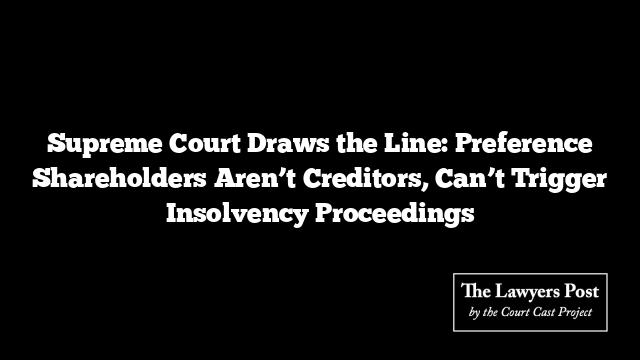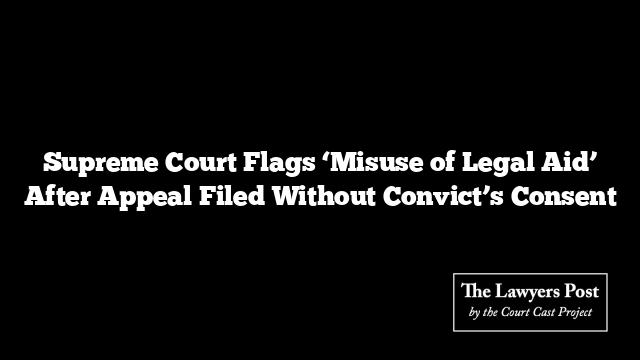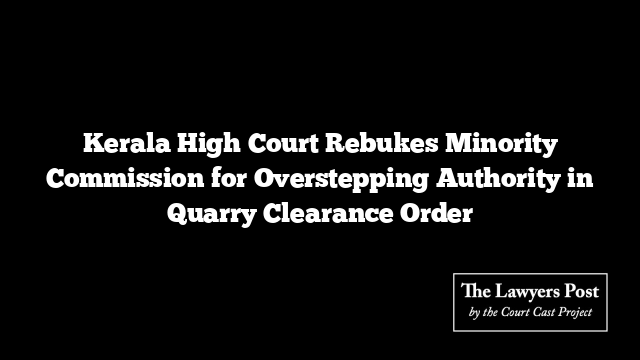In a ruling that tightens the boundary between investment and debt, the Supreme Court has declared that holders of cumulative redeemable preference shares (CRPS) cannot be treated as financial creditors under the Insolvency and Bankruptcy Code (IBC).
A Bench of Justices JB Pardiwala and KV Viswanathan upheld decisions of the National Company Law Tribunal (NCLT) and its appellate body (NCLAT), affirming that such shareholders remain investors—members of the company’s capital structure—and not creditors entitled to initiate insolvency under Section 7 of the IBC.
The judgment came in an appeal by EPC Constructions India Ltd (in liquidation) against Matix Fertilizers and Chemicals Ltd, where the Court ruled that EPC’s preference shares represented equity participation, not a loan or financial debt.
The Court observed that Section 5(8)(c) of the IBC—which lists instruments like debentures, notes, and loan stock—conspicuously omits preference shares, a silence it described as “significant.”
The dispute arose from a 2015 arrangement between EPC and Matix. Facing payment delays, Matix proposed converting part of its dues into ₹250 crore worth of 8% cumulative redeemable preference shares, to be redeemed after three years—but only from profits or proceeds of a fresh issue. When EPC later entered insolvency, its liquidator demanded ₹632.71 crore from Matix, including sums tied to redemption of those shares.
Matix denied liability, leading EPC’s liquidator to move the NCLT under Section 7 of the IBC. The Tribunal rejected the plea, stating that non-redemption didn’t constitute “default” because the Companies Act allows redemption only from profits or a new share issue. The NCLAT upheld that view in April 2025.
The Supreme Court’s ruling cements that stance. It reaffirmed that preference shareholders, no matter how aggrieved, cannot claim repayment as of right or equate their position with creditors. The Court cited long-standing principles from company law commentaries and earlier judgments, noting that repayment of preference shares is not akin to settling a loan.
“Preference shareholders are only shareholders, not creditors,” the Bench declared. “They cannot, as of right, demand return of their share money except in a winding-up.”
The Court also dismissed the argument that accounting treatment—as “financial liabilities”—could redefine the nature of the relationship. “Accounting standards cannot override the legal character of an instrument,” it said, warning against using financial reporting classifications to bypass the Code’s substantive requirements.
The verdict underscores that preference capital, even when redeemable, remains part of the company’s capital—not its debt. Consequently, EPC’s attempt to invoke insolvency against Matix under Section 7 of the IBC was held untenable.
The appeal was dismissed, with the Court concluding succinctly:
“The appellant, being a preference shareholder, is not a creditor. Its application under Section 7 of the IBC cannot stand.”





